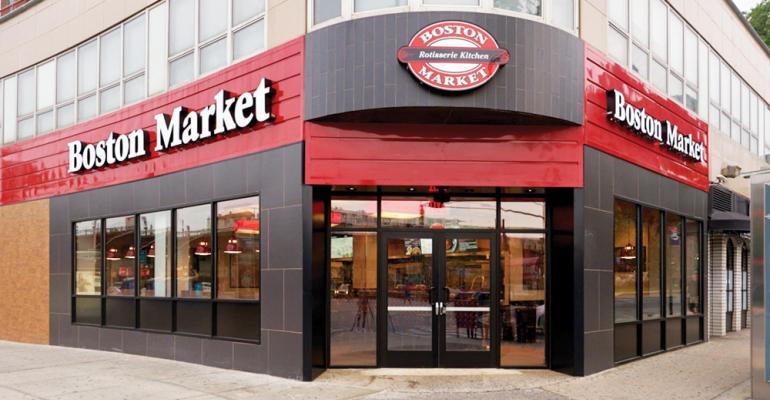Adding to a growing pile of legal and financial woes for the Boston Market corporation, the New Jersey Department of Labor ordered the shutdown of 27 Boston Market locations across the state for multiple instances of labor violations and fined the restaurant company nearly $2.6 million, according to a state department press release issued on Aug. 15.
After an investigation, the New Jersey Department of Labor found that the company owed $607,000 in back wages to 314 workers across the 27 locations in New Jersey, and violations included unpaid/late payment of wages, hindrance of the investigation, failure to pay minimum wage, records violations, failure to pay earned sick leave, and failure to maintain records for earned sick leave.
“With restaurants across the country, Boston Market needs to set a better example for fair treatment of its workers,” Joseph Petrecca, assistant commissioner of the New Jersey Department of Labor’s division of wage and hour and contract compliance said in a statement. “The NJDOL has the tools to carry out large-scale enforcement efforts within the state so we can work with employers to stop worker exploitation, create sustainable change, and prevent future violations.”
This is just the latest legal issue Boston Market has faced since the company was sold to Engage Brands under the Rohan Group of Companies in 2020, during which time the company has racked up millions of dollars of lawsuits from unpaid wages, rent, and vendor bills, including the most expensive lawsuit filed by food distributor, US Foods, which sued the rotisserie chicken chain for $11.3 million in unpaid bills in July.
Since the lawsuits began piling up from unpaid bills, workers at both the corporate and store levels told Nation’s Restaurant News that they have struggled to communicate with leadership at the company and have dealt with delayed and missing paychecks, as well as layoffs as stores began closing left and right.
In a recent interview with Nation’s Restaurant News, a former Boston Market executive, who asked to remain anonymous, implied that the problems at Boston Market start and end at the top, with Rohan Group owner and real estate investor, Jay Pandya.
“There are hundreds of lawsuits out there [against Boston Market],” the former executive told Nation’s Restaurant News. “In the last year, there have been a half a dozen times when payroll was late, and there's probably been about a half a dozen times where payroll has been late, and it’s never [Jay Pandya]’s fault. It’s always somebody else’s fault…. He thinks that when business is bad, he doesn't have to pay landlords and he thinks paying rent is optional.”
The former executive, who left the company earlier this year, alleged that Pandya negotiates on deals with landlords and vendors, and then once he gets what he wants, stops paying his bills:
“He enters into settlement agreements, makes the first payment, and then does not continue with the obligation or breaks the agreement,” the executive continued. “With vendors, he’ll build up a balance, and then he’ll send them a small amount of money in order to get them to provide him with more services or products on the promise of a payment, but he never makes good on it…We had a brand-new 20-year Boston Market lease, and there's a value behind that. But the value is that the tenant pays the rent…. Once he sold the deal and got the money, that's when he stopped paying rent on it. And that's fraud.”
This pattern of legal and financial problems faced by Rohan Group has continued with Pandya’s other entities outside of Boston Market. Pandya faces multiple ongoing lawsuits, both as part of Boston Market and outside of these cases, including an ongoing legal battle with Pizza Hut for alleged violations of franchise agreements concerning Pizza Hut franchises Pandya owns in Pennsylvania. Pizza Hut is seeking $11 million in damages and attorney’s fees through the lawsuit, which was last updated in Feb. 2023.
Additionally, in February, under the ownership of Pandya Restaurant Growth Brands, Corner Bakery Café declared bankruptcy.
“He has [established this] pattern that I thought was going to change once he became the corporate entity, but nothing has changed,” the former Boston Market executive explained. “…He's closing restaurants, he's abandoning restaurants, he’s stiffing landlords. It didn’t have to be this way. You have a very loyal customer base. The product is pretty good. But he just isn’t…. If you don't pay your bills, and all you care about is cashflow then all you have is profit, and that’s not a business.”
Contact Joanna at [email protected]m





